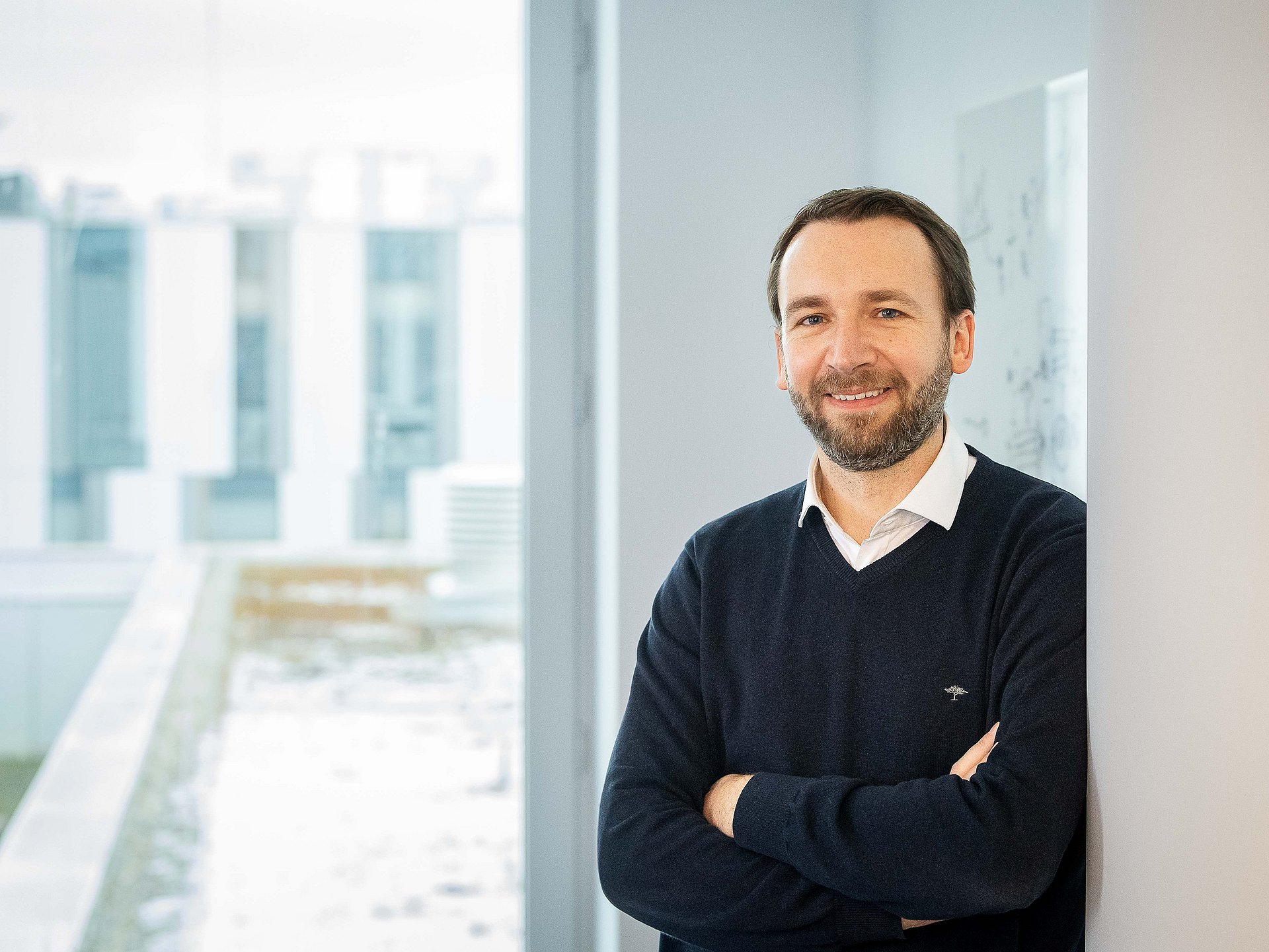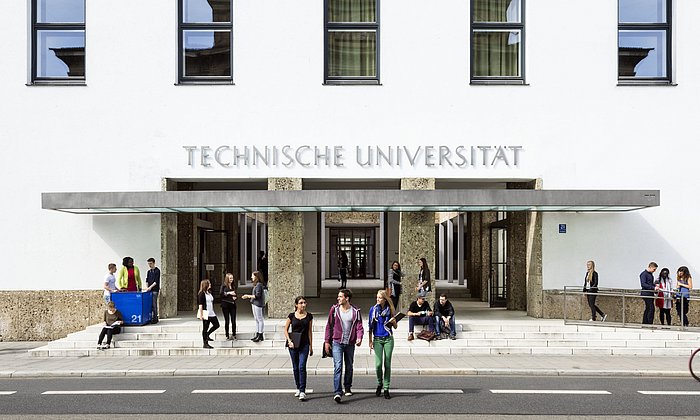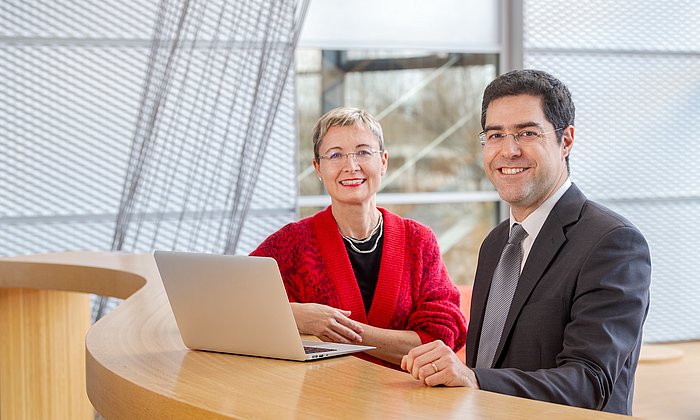Munich Data Science Institute
Machine Learning for everyone

More stories featured in TUMcampus issue 1/2023
In Laser Powder Bed Fusion, a 3D printing method, a laser beam sweeps over a layer of metal powder, melting the grains with high precision. Countless layers accrue, and gradually a three-dimensional object takes shape. The heating and cooling processes can however result in microstructures with unknown properties, which can be a problem for safety-critical applications. This means that, ideally, the impact of the additive manufacturing process on the materials used should be taken into account as early as the design phase of the 3D printer.
It's actually possible to simulate this effect using computers. "However, that requires very large amounts of computing power and equally large amounts of energy and time," says Julija Zavadlav, TUM Professor of Multiscale Modeling of Fluid Materials. One solution could be Machine Learning: A system capable of automatically learning and forecasting could provide the results of a simulation without having to perform the resource-intensive calculations. "And this is where the Munich Data Science Institute comes in," says Prof. Zavadlav.
MDSI brings researchers together
Since 2020, the Munich Data Science Institute (MDSI) has been the central hub for Data Science, Machine Learning and Artificial Intelligence (AI) at TUM. The Integrative Research Institute brings together researchers from all disciplines. "The MDSI has helped us launch an interdisciplinary project where we can conduct research on how Machine Learning can improve mechanical property simulations," says Julija Zavadlav. Computational Material Design is currently one of two focus topics at MDSI.
"Substantial research on Machine Learning and Data Science already existed before we founded the MDSI," says Stephan Günnemann, Executive Director of the MDSI and Professor of Data Analytics and Machine Learning. "With the MDSI, we unite the individual research directions and, as a result, can consolidate them much more intensively, thus making full use of our strengths." Approximately 60 professors are Core Members of the MDSI, including researchers from computer science like Stephan Günnemann, from engineering sciences like Julija Zavadlav, as well as representatives from natural sciences, life sciences, social sciences and medicine. In addition to the focus topics, which are highly oriented towards practical application, the MDSI also promotes fundamental research in AI and Data Science. The MDSI also wants to make the latest developments available to society quickly through close collaboration with institutions from the entrepreneurship sector.
Contact point for Data Science projects
"We're more than just a research institute: At the MDSI, we see ourselves as a service facility as well," says Stephan Günnemann. "Research with large volumes of data entails certain challenges which are not always directly related to the subject at hand." Whether proteomics research, social media analysis or inorganic catalysis: In every practical application it is for example enormously important to choose the respective appropriate data structures and analysis methods. "The MDSI advises TUM researchers as early as the planning phase and continues to provide support throughout the further course of the project," says Prof. Günnemann.
AI talents from around the world
Data Science and Machine Learning also play an important role in teaching at TUM, with the active involvement of the MDSI. The MDSI's Data Innovation Lab program has for several years provided students with an opportunity to conduct exciting and practically-oriented Data Science projects in collaboration with companies. The Data Innovation Lab explicitely targets students from all academic disciplines.
With the "Konrad Zuse School of Excellence in Reliable AI", MDSI is coordinating a ground-breaking project in AI teaching and research in collaboration with Ludwig-Maximilians-Universität Munich (LMU). The German Federal Ministry of Education and Research (BMBF) and the German Academic Exchange Service (DAAD) are financing three Zuse Schools in Germany with the objective of attracting outstanding Junior AI Scientists from around the world. "Each year Master's and Doctoral students can apply to the Konrad Zuse School," says Stephan Günnemann. The School enriches undergraduate and doctoral studies with substantive supplements. "As the name says, the focus is on reliable Artificial Intelligence – i.e. on the question of how we can ensure that Machine Learning algorithms do exactly what they've been programmed to do," Prof. Günnemann explains. In addition, members of the School receive access to services such as internships, research abroad and courses on topics like science communication.
Open to all interested parties
And there are many exciting developments to come, following the successful launch of the Konrad Zuse School and the establishment of the MDSI. "Many new research projects will be launched in the upcoming months. And we also offer scientific workshops on a variety of Data Science topics, as well as certificate programs and hackathons – there is something for everyone interested", says Stephan Günnemann. And the first research projects will soon be evaluated. This will include Julija Zavadlav's project on Machine Learning for modeling material properties. "The project has already generated some interesting results," says the professor. "I'm looking forward to more interdisciplinary collaborations at the MDSI in the future."
The MDSI is home to two independent institutes: the Zentrum für Digitale Medizin und Gesundheit (Center for Digital Medicine and Health) and the TUM Georg Nemetschek Institute Artificial Intelligence for the Built World. The broad network of the MDSI also includes the Munich Center for Machine Learning, one of six national AI competence centers, whose TUM branch is also located at the MDSI.
Technical University of Munich
Corporate Communications Center
- Paul Hellmich
- presse@tum.de
- Teamwebsite
Contacts to this article:
Prof. Dr. Stephan Günnemann
TUM School of Computation, Information and Technology
Data Analytics and Machine Learning Group
+49 89 289 17282
stephan.guennemann@tum.de







